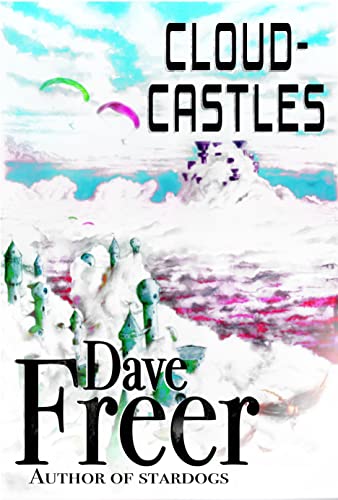
He has a long, double-barreled English name, but is generally known as “Squigs.” He is very tall and thin, has big feet, and is extremely awkward with girls. He studied Alchemy at an English university, which led him, through complex circumstances, to find himself on a watery planet called Zoar, where he’s completely out of his element – and he was never all that at home even on earth. Also, his right hand is missing. He finds himself rescued by a beautiful young girl in a boat, with whom he falls immediately in love. She finds him beneath contempt. Now, Crum the Barbarian, big, blond, dumb and handsome – that’s a guy she could go for.
The girl’s big, pugnacious father is looking for help hunting poachers. Zoar is inhabited by dragons, and dragon teeth are a coveted natural resource. But unfamiliar, interstellar vehicles have been showing up recently and killing dragons way over the hunting limits. Eager to impress the girl, Squigs volunteers to help pursue the poachers. He doesn’t seem well equipped for the quest, but he has qualities nobody has ever appreciated, and he acquires a faithful friend in a fearless dwarf. And the new hand he acquires – black, with eight serpentine fingers, turns out to be useful in surprising ways.
Save the Dragons is by Dave Freer, and showcases his punning, likeable, and satirical style. Lots of fun.


